These Are the Lightest EVs You Can Buy Today
Weight matters in the battery-powered automotive world, where mass cuts into distance.
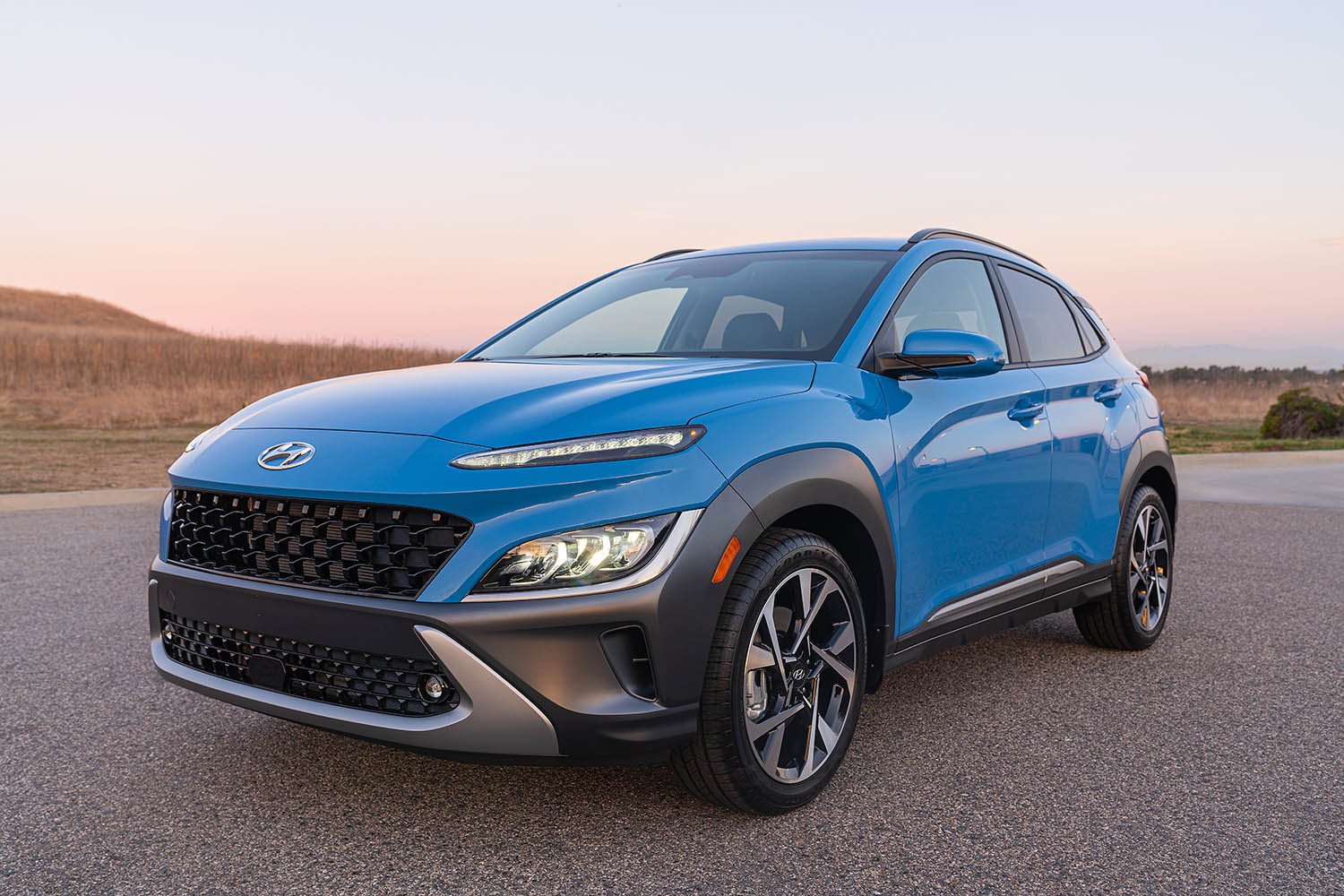 Hyundai
Hyundai
It might seem that electric vehicles, freed from the mass of heavy internal-combustion engines, would be significantly lighter than their gas-powered peers. But the added weight of an EV’s battery pack can still make for a hefty ride.
Just how hefty? On the extreme end, every new GMC Hummer EV model weighs more than 9,000 pounds, and nearly a third of that weight comes from the battery pack. More body weight, of course, means less efficiency from the battery-electric motor systems that move EVs along.
But not all electric vehicles are of Hummer-like proportions. Here are five of the lightest EVs currently available in the United States.
 Mini
Mini
2023 Mini Cooper SE: 3,144 pounds
With a range of just 114 miles, the 181-horsepower, electrified Mini Cooper SE is very much a city car. But it still retains the fun-to-drive character and parking-spot-friendly size of its gas-powered cousins. Plus, it’s loaded with whimsical displays and controls, and boasts distinctive asymmetrical wheels. It starts at around $32,000.
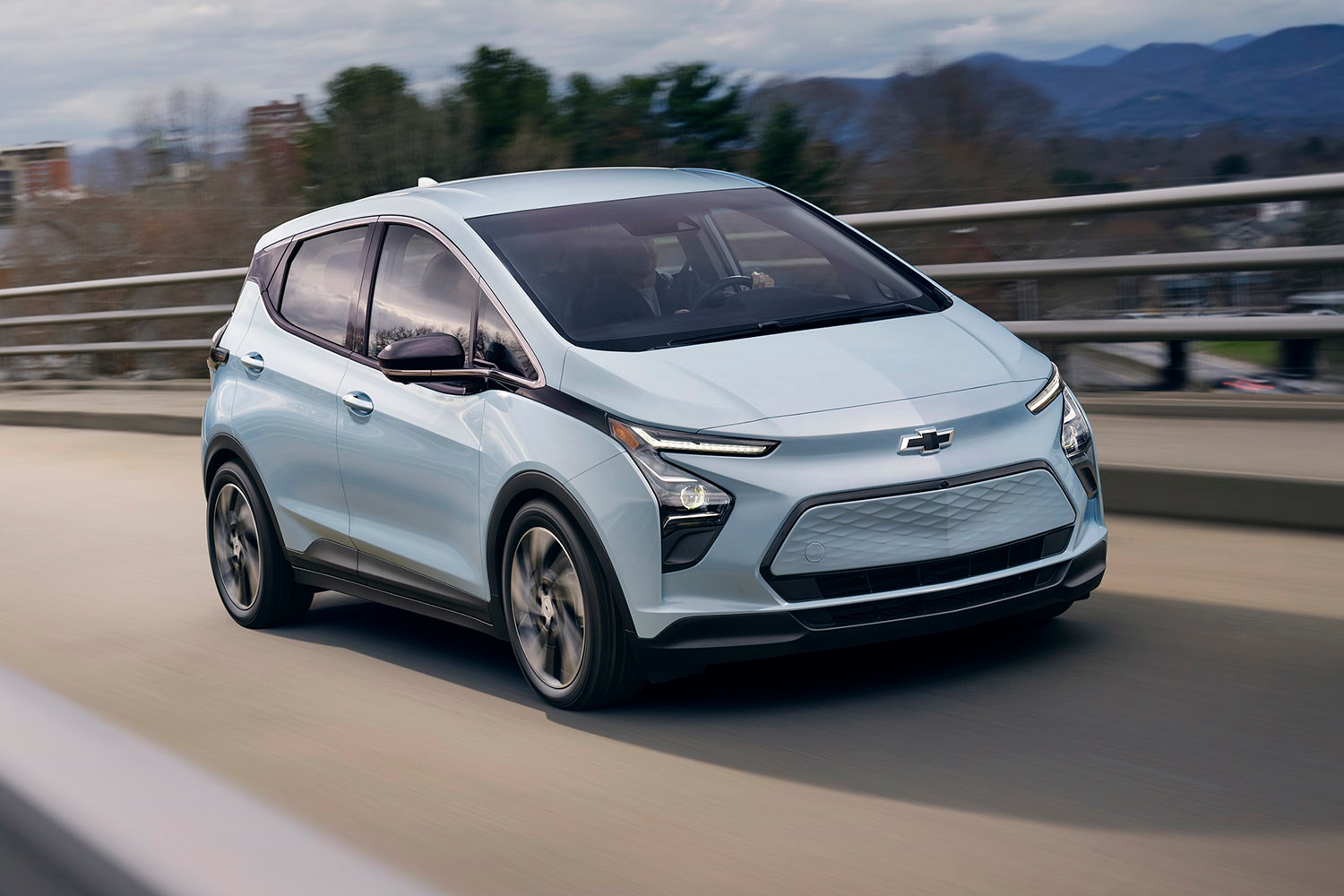 Chevrolet
Chevrolet
2023 Chevrolet Bolt EV: 3,589 pounds
After serving as General Motors’ first mass-market EV since 2016, the Chevy Bolt EV was joined by a somewhat larger sibling, the Bolt EUV, in 2021. The traditional Bolt EV has also dropped significantly in price for the 2023 model year, and now sells for about $27,000. But you’ll still get a 200-hp machine with a manageable 259-mile range. Some may find its largely plastic interior a little austere, but the Bolt nonetheless delivers domestic EV utility and a friendly personality. Unfortunately, if you're looking to buy either flavor of the Bolt, you'll need to act fast, as both will be discontinued at the end of 2023.
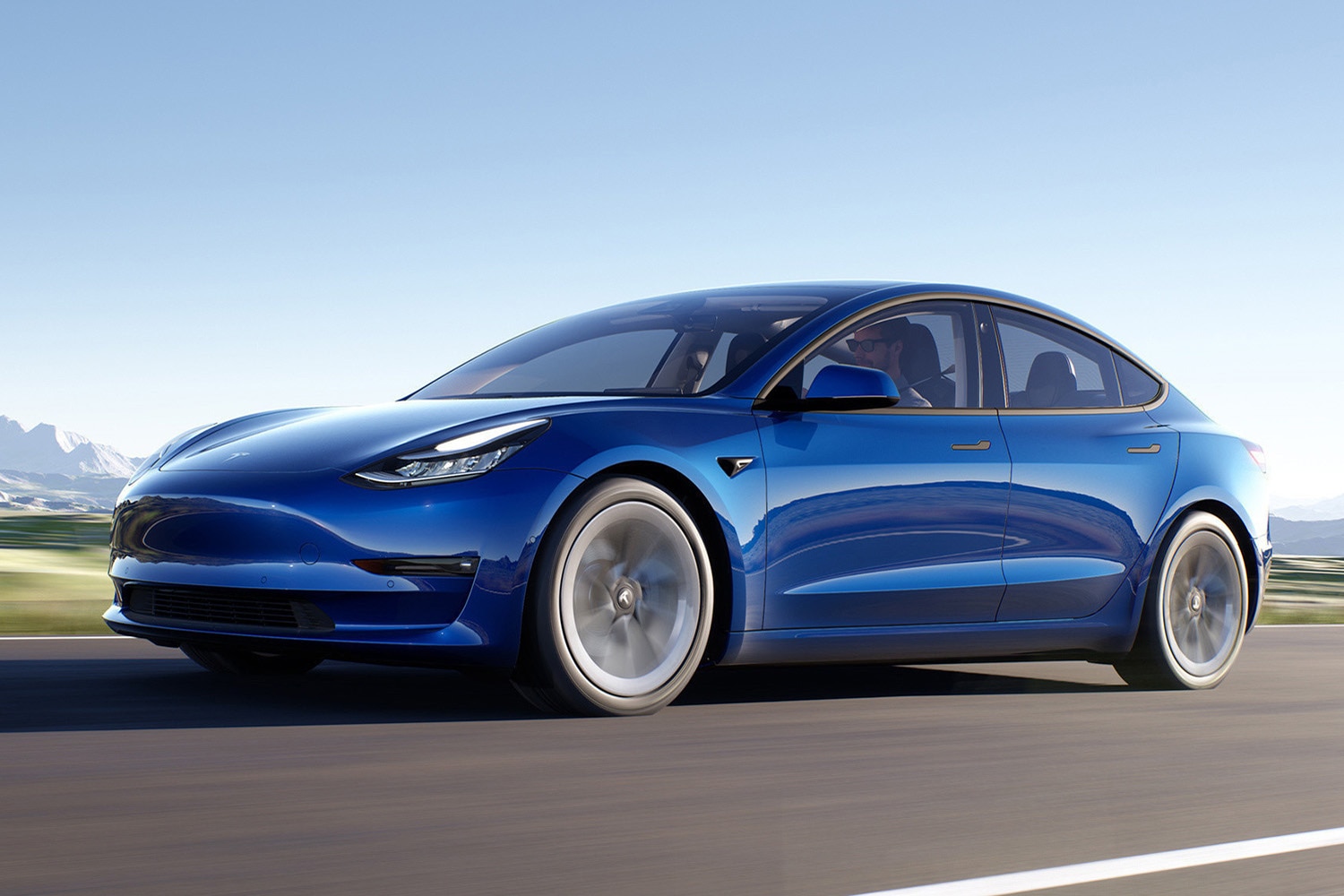 Tesla
Tesla
2023 Tesla Model 3: 3,565 pounds
Though it has a longer range (272 miles in its most basic, rear-wheel-drive version) and more power (271 hp in the same setup) than many of its competitors, the Tesla Model 3 is a surprisingly lightweight car. Tesla’s focus on technology means the infotainment and control systems are self-updating, and the much-publicized Autopilot system is available as an expensive option or via subscription. Base models start about $42,000.
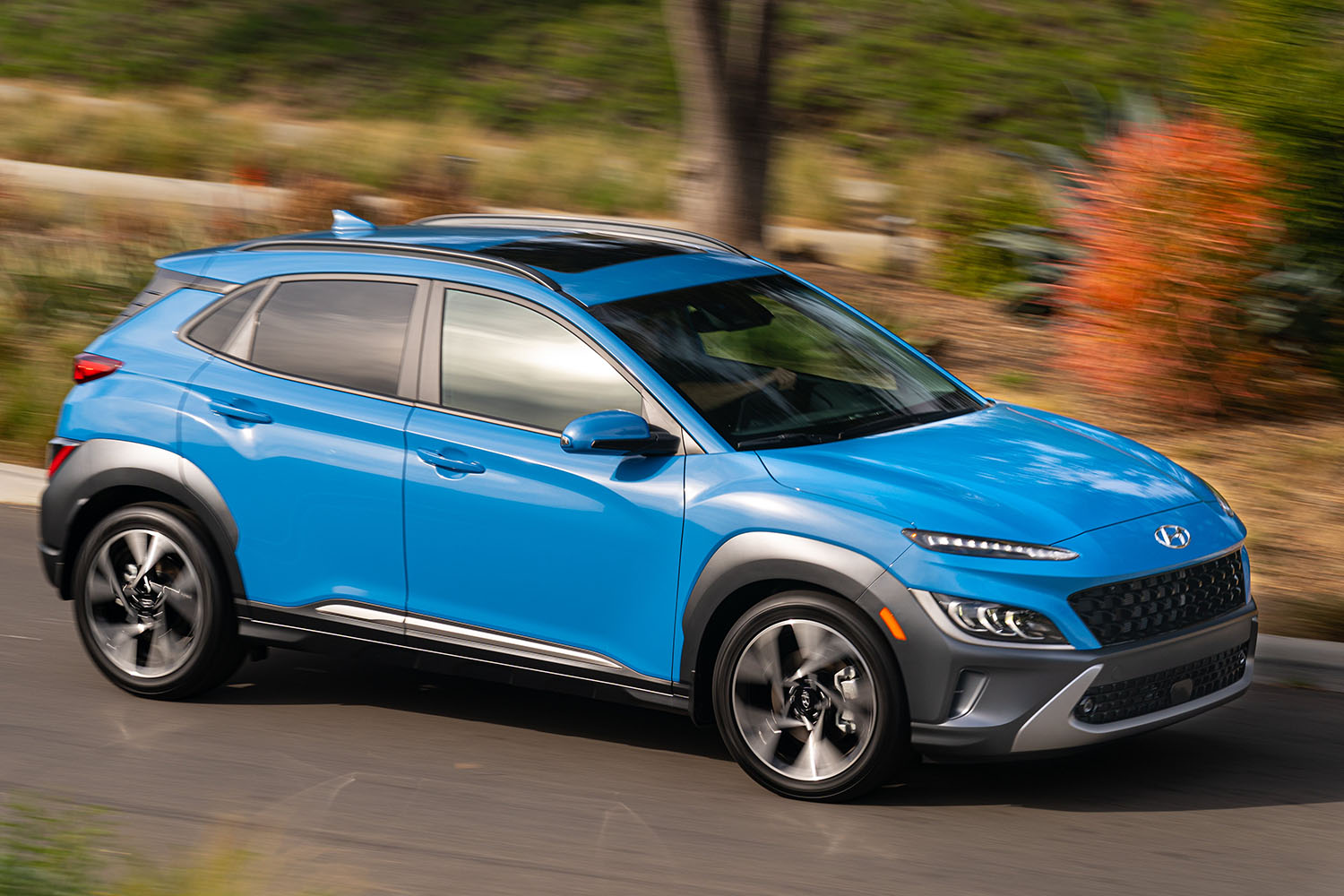 Hyundai
Hyundai
2023 Hyundai Kona Electric: 3,715 pounds
Hyundai’s pint-sized crossover is a good platform for electrification, and the 201-hp Kona Electric, priced at around $35,000, offers a decent 258-mile range. The Kona’s displays also offer concise data on its available range, a map to show how far you can go before your juice runs low, and where charging stations are located. An on-the-nose charging port and knee-level headlamps also give this lightweight EV a distinctive look.
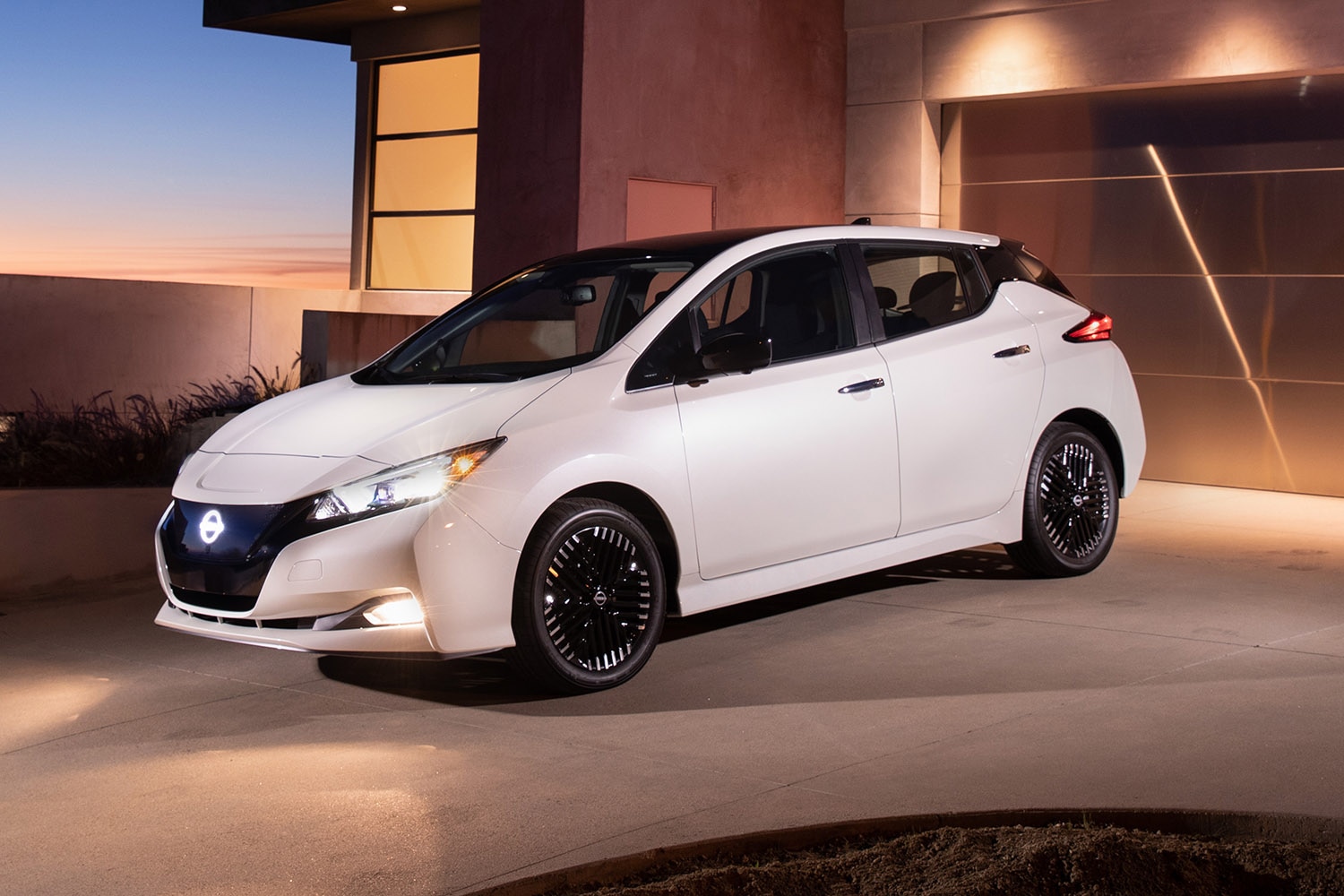 Nissan
Nissan
2023 Nissan Leaf S: 3,509 pounds
The Nissan Leaf was an early entry into the EV world, and this lightweight EV is still going strong. The base S model offers 149 miles of range from its 147-hp electric motor, and with a base price of around $29,000, it remains an affordable introduction to EVs. While the exterior styling has been updated for 2023, the shift knob — one of the most peculiar in the business — remains.
Written by humans.
Edited by humans.
 Andy Stonehouse
Andy StonehouseAndy Stonehouse literally fell into the world of auto writing while working as a ski-town journalist, and has not looked back since. A childhood spent dealing with the eccentricities of a 1976 MG Midget has made any subsequent auto experience a more safe and reliable drive. He has been blessed with nearby mountain trails and snowy roads in Colorado to do TV-adventure-styled test drives on a weekly basis.
Related articles
View more related articles